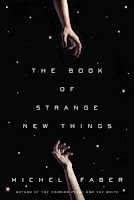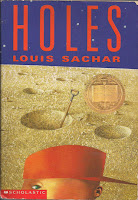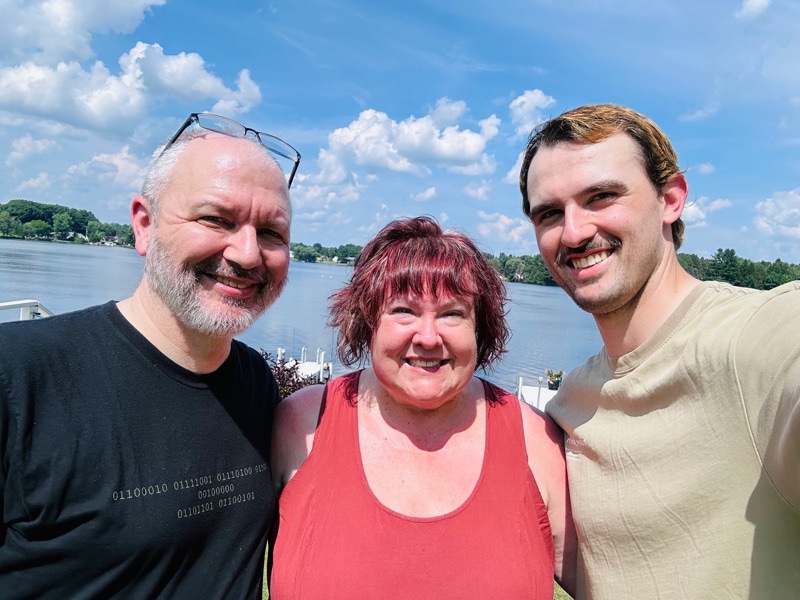HOLY SHIT THIS BOOK BLEW MY MIND.
I hate saying that, because I'm fresh off a couple of books that were EXCEEDINGLY mediocre and the Goodreads reviews were ravingly positive (remember how I resolved to only read good books for a while? Turns out it's hard to tell a good book from an indifferent book sometimes, and when they're on your Kindle already... well, let's not talk about it, it's still a little painful). But you know me - you know I don't say this kind of thing about a book lightly, right?
Goodreads synopsis: Neil Gaiman meets Joe Hill in this astonishingly original, terrifying, and darkly funny contemporary fantasy.
Carolyn's not so different from the other human beings around her. She's sure of it. She likes guacamole and cigarettes and steak. She knows how to use a phone. She even remembers what clothes are for.
After all, she was a normal American herself, once.
That was a long time ago, of course—before the time she calls “adoption day,” when she and a dozen other children found themselves being raised by a man they learned to call Father.
Father could do strange things. He could call light from darkness. Sometimes he raised the dead. And when he was disobeyed, the consequences were terrible.
In the years since Father took her in, Carolyn hasn't gotten out much. Instead, she and her adopted siblings have been raised according to Father's ancient Pelapi customs. They've studied the books in his library and learned some of the secrets behind his equally ancient power.
Sometimes, they've wondered if their cruel tutor might secretly be God.
Now, Father is missing. And if God truly is dead, the only thing that matters is who will inherit his library—and with it, power over all of creation.
As Carolyn gathers the tools she needs for the battle to come, fierce competitors for this prize align against her.
But Carolyn can win. She's sure of it. What she doesn't realize is that her victory may come at an unacceptable price—because in becoming a God, she's forgotten a great deal about being human.
Normally the "whoever meets whoever" thing isn't borne out by the reading at all, but in this case Neil Gaiman meets Joe Hill is pretty dead on. I would throw in shadings of Terry Pratchett also. "Original, terrifying and darkly funny" isn't wrong either, although the terrifying is dialed way, way up, with accompanying accents of horrifying, soul-rending and nightmare-inducing, and the darkly funny is more like salt in soup - the soup would be unbearable without it, but it's not obvious. This book is most certainly not for the faint of heart, or the delicate of sensibilities, is what I'm saying. It should maybe come with a warning label. But to borrow from good old Aristotle, if you're looking for a heaping helping of cathartic pity and fear, look no further.
For the first little bit, you have no freaking clue what's going on, which is sort of appropriate, really. There are some strange characters, and then there are a couple of really sympathetic characters, and when you realize that the sympathetic characters are getting wound up in the bizarre machinations of the strange characters you're all hand-wringy and tenterhooky. Then things start to become clearer and you're all JESUS CHRIST these are the abhorrent, repugnant fabrications of a diseased imagination. And then you kind of settle into it and you're all, well, did you really think the universe could be made and reality controlled without breaking a few eggs, and yeah, I could see how OH DEAR GOD, TOO MUCH, TOO MUCH.
And in the midst of all of it there are moments of flat-out hilarity, the kind you don't get unless you're already keyed to the screaming point. And the children discussing Father's friends: "'Some of the others we don't see much. Like Q-33 North.' 'Is he the one with tentacles?' "No, that's Barry O'Shea. Q-33 is the sort of iceberg with legs, remember? Up in Norway.' 'Oh, right.'" And some really cool stuff about lions. And a chapter called "About Half a Fuckton of Lying-Ass Lies". And Carolyn telling Steve about the library like this: “’But…’
he looked up at the cloud of lights overhead. ‘I mean…the universe is, like,
big? Right?’ ‘Yes and no. Size is notional. It has to do with the structure of
space. The door we came through was a gateway, but it’s also sort of a
transition function. You wouldn’t be wrong to say that going through the
transition makes you bigger.’ ‘I feel the same size.’ ‘Well… you wouldn’t
really be right to say it either.
It’s sort of mathy.’”
There are also genuine moments of pathos and empathy. It's a wild jumble of stuff that in the beginning seems incomprehensible, and then the author draws together all the frayed ends into something brilliant and strange. This is something I admire. But, like my friend said after watching Shaun of the Dead, "Really liked it. Not sure who I would recommend it to."


















